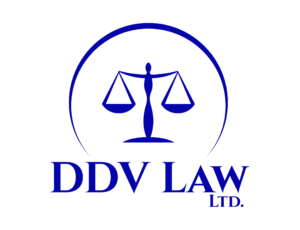Comprehensive estate planning is essential for everyone as most of us have either children, personal assets, or sentimental belongings that will be inheritable or require care in the case of children. However, for those people who are business owners, comprehensive estate planning is a must to preserve and protect their business interests for sale or future generations.
As a business owner, you may feel your time is not your own between the task of running your business, likely raising a family, and handling the multitude of other daily tasks. No matter your schedule, identifying and meeting with an estate planning attorney should be at the top of your to-do list. Yes, online templates seem viable; however, it is easy to overlook important details that will protect your business better. It is essential to retain an elder law attorney, which includes estate planning, permitting you to use your time better and promote better outcomes. While no one can predict the future, a qualified estate planning attorney can plan for it.
Why Do Business Owners Need a Financial Power of Attorney?
As a business owner, it is imperative to appoint a qualified and responsible financial power of attorney for your business representation. This trusted fiduciary representative will handle your finances if you can no longer make decisions due to health issues or after your death. Business owners often have more complex financial systems requiring careful thought to select the right person for this role. Create some transparency in your financial structure in the form of an outline or letter that identifies significant business categories, tasks, and financial expectations. Providing information provides your financial power of attorney a head start in overseeing your business and finances on your behalf.
The Value of a Living Trust for Business Owners
It may be beneficial to take the many assets you have that tie specifically to your business and put them in a living trust. Creating a living trust must be done before you experience any adverse ill-effects on your health. If there is wiggle room for others to question whether you are of sound mind, it may negatively impact the trust. The living trust will include directives pertaining to your assets and name a person or legal entity you select as the trustee. The trust you establish ensures no matter what happens to you, the assets helping to run your business are protected and in the hands of the people you most trust. Ensure your living trust is continually updated, reflecting the business climate and asset allocation changes as your business grows.
Creating a living trust for small businesses is particularly important for the sole owner or sole proprietorship structure. Legally, there is no separation between you and your business. What this means, according to cpapracticeadvisor.com, is “you cannot leave your business to anyone within your trust because legally you are your business.” Therefore, the only part of the business you can protect is its assets, so listing them in a living trust is imperative to guarantee their protection. The nuances of your business type (sole owner, partnership, LLC, S corp, et al.) and the upcoming tax law proposals that may fundamentally change the S corporation structure and more require careful consideration when formulating your living trust.
Why It’s Important for Business Owners to Create a Succession Plan
Finally, creating a succession plan provides the strategic blueprint for the seamless transition of your business operations to partners, managers, future generations, or successor owners. If your business is a partnership, a solid succession plan will ensure your replacement as a business owner is someone you fully trust to handle the challenge. A succession plan will also provide a smooth transition, adhering to your company’s mission and core values to better manage the expectations of any stakeholders in your business.
The world is experiencing an especially challenging business environment due to COVID-19, which hits small businesses particularly hard. As a small business owner, you may have already shifted strategies or are re-imaging the legal structure of your business entity to be in a better position for possible upcoming corporate tax law changes. You may already have a living trust for your business that needs review. Contact an elder law attorney specialist to fully understand how best to protect your small business within your overall legacy planning.
When you are ready to take the next step, contact our Chicago area offices by calling 312-878-0155. We have three convenient locations to assist you.

